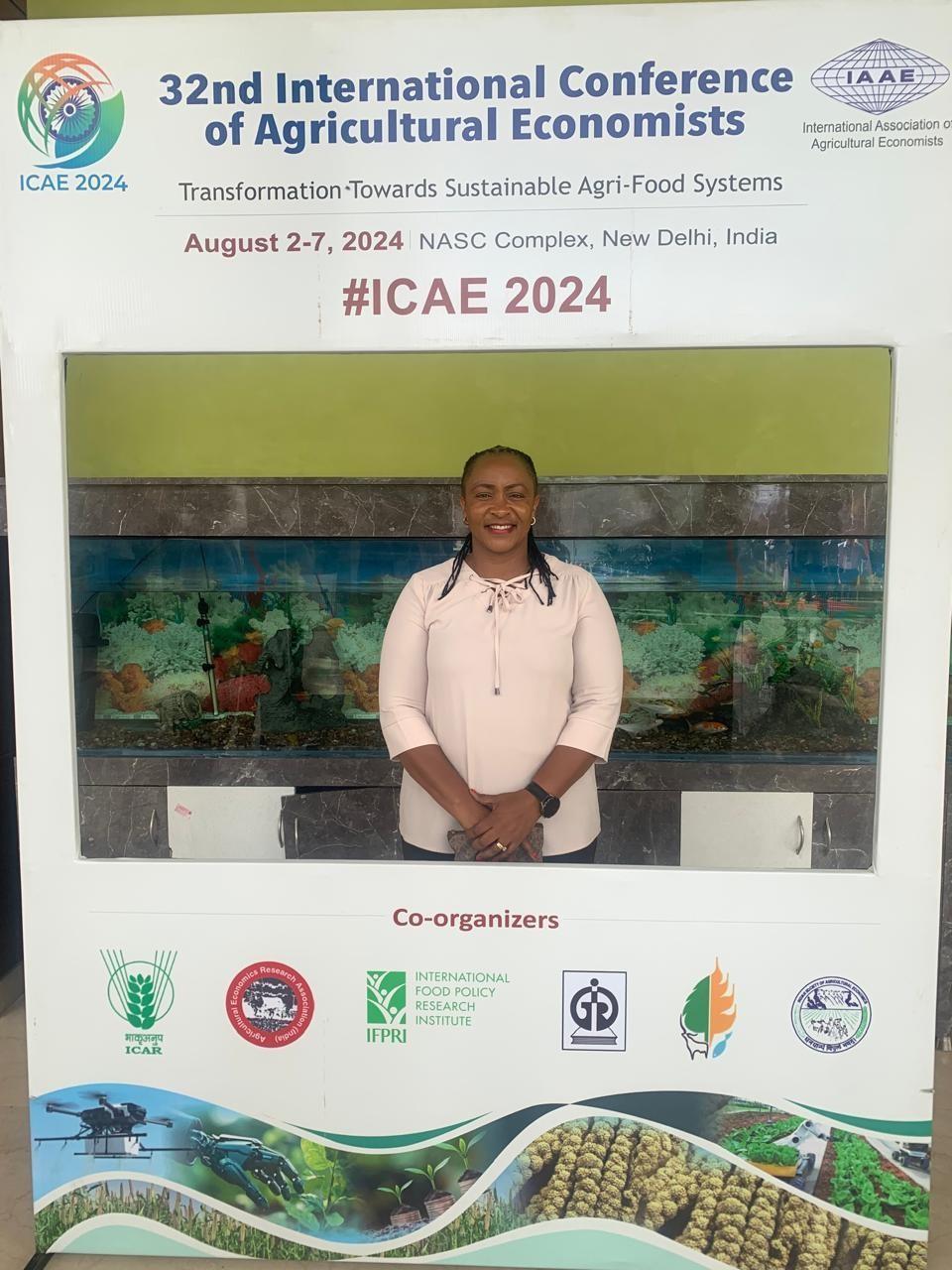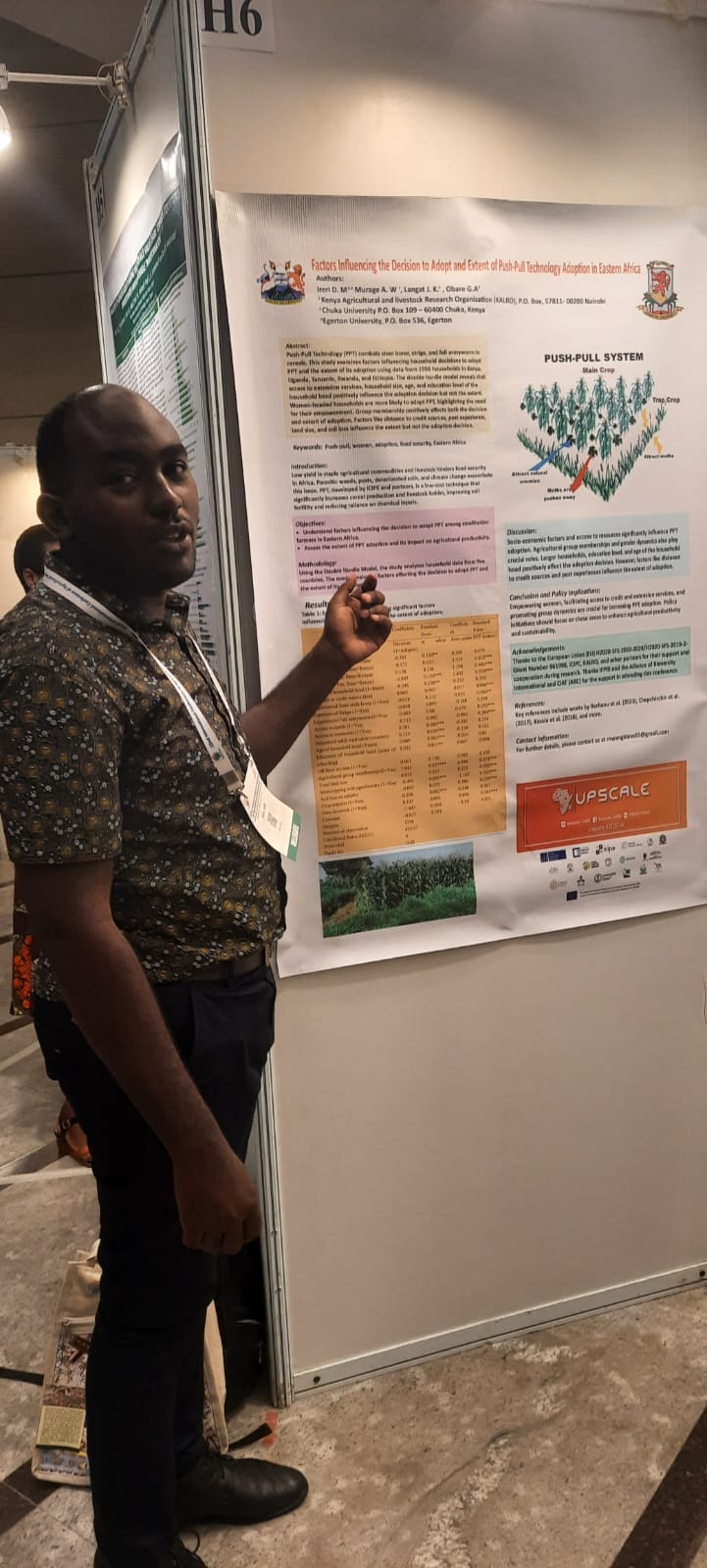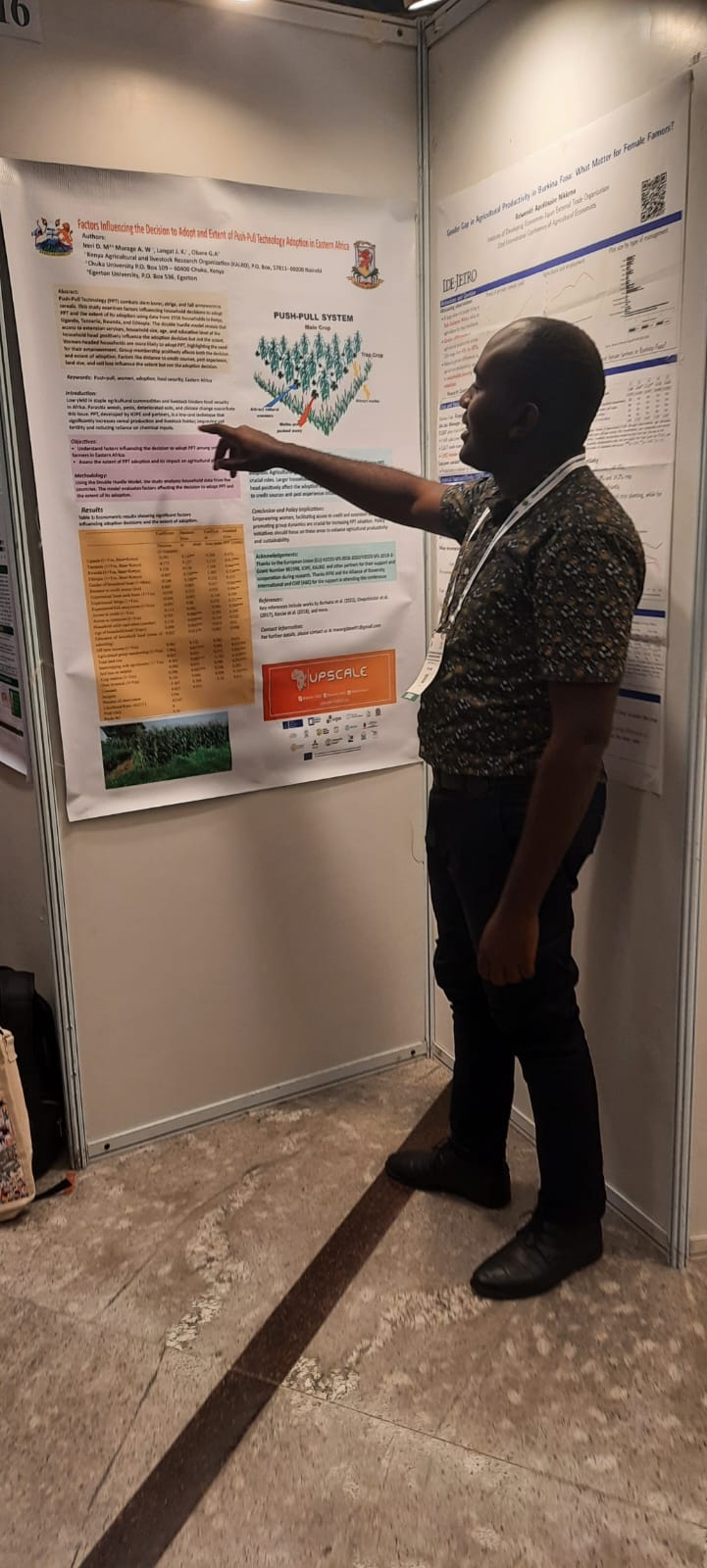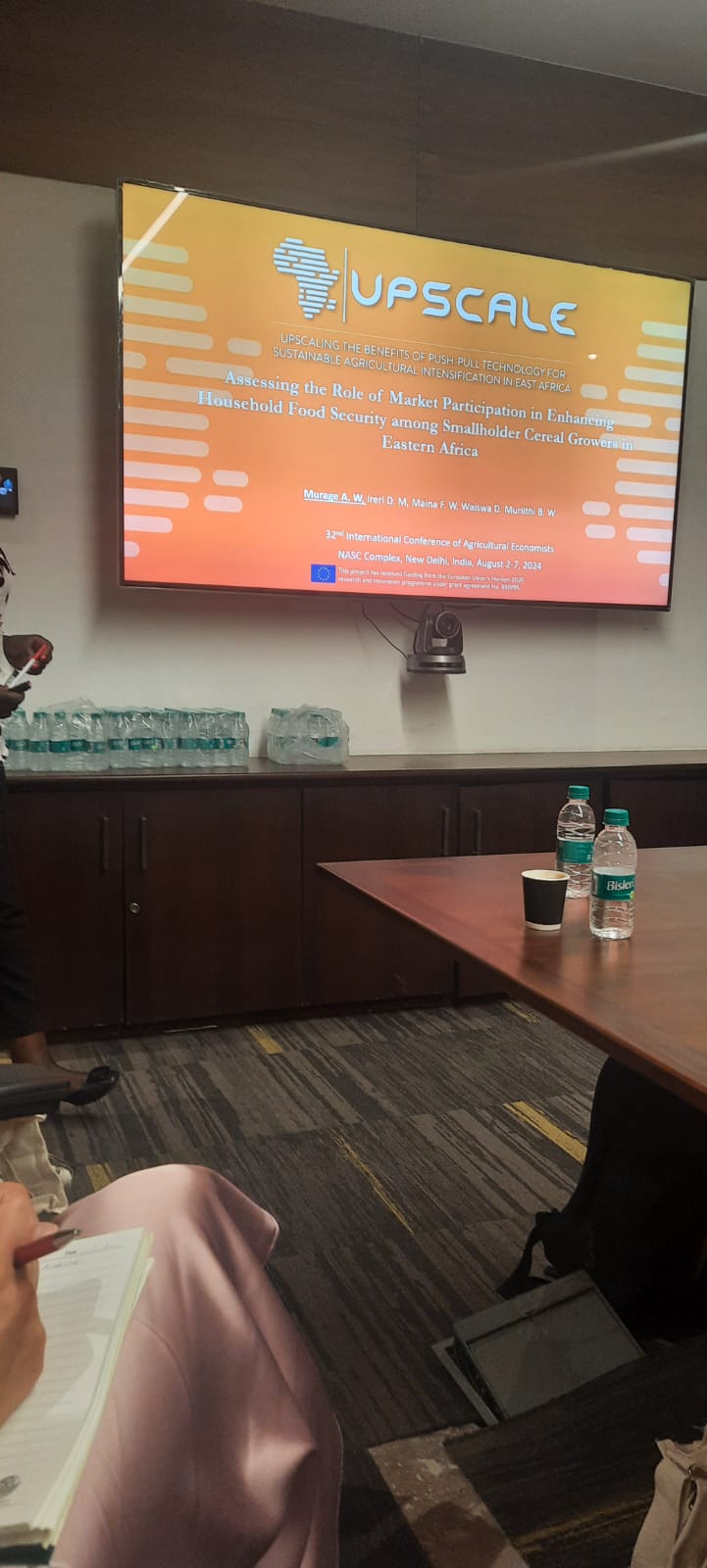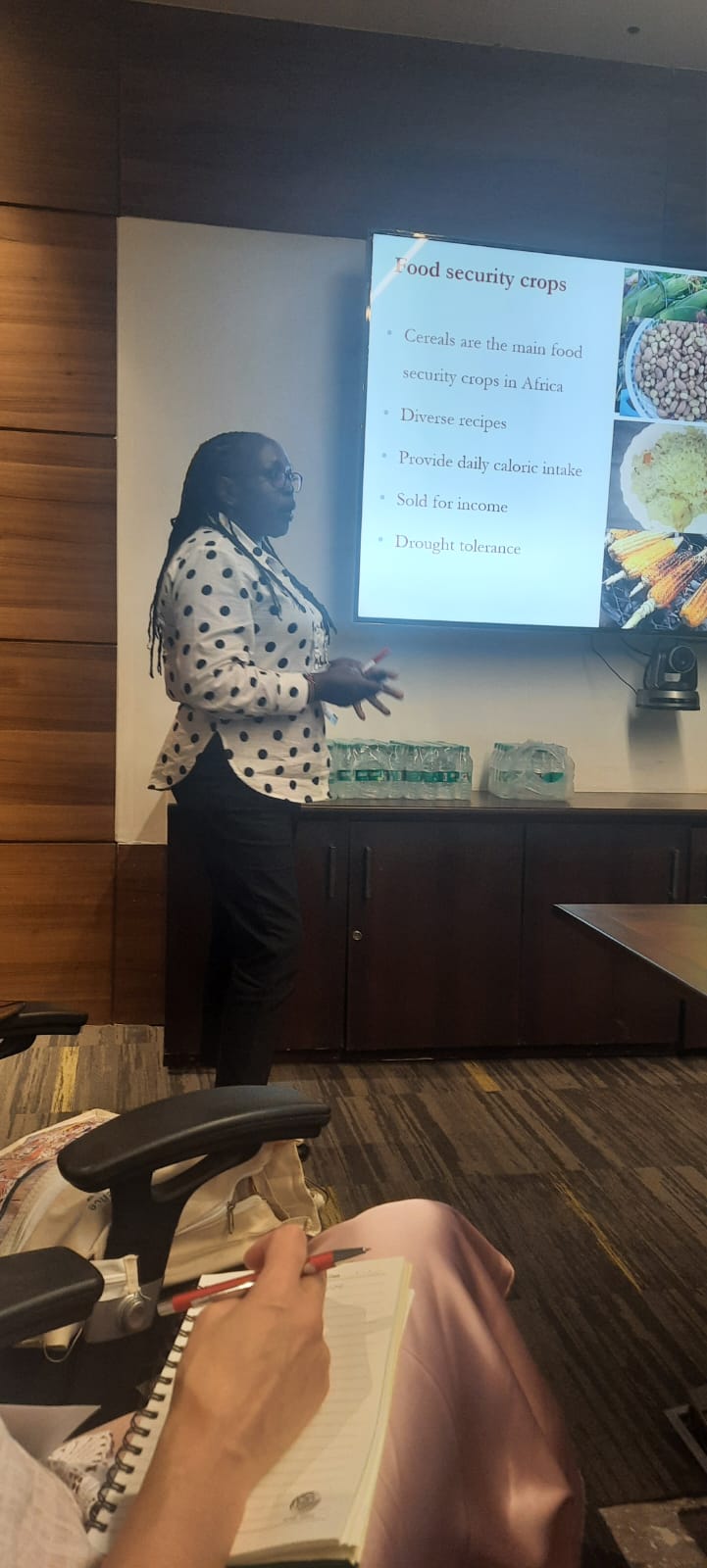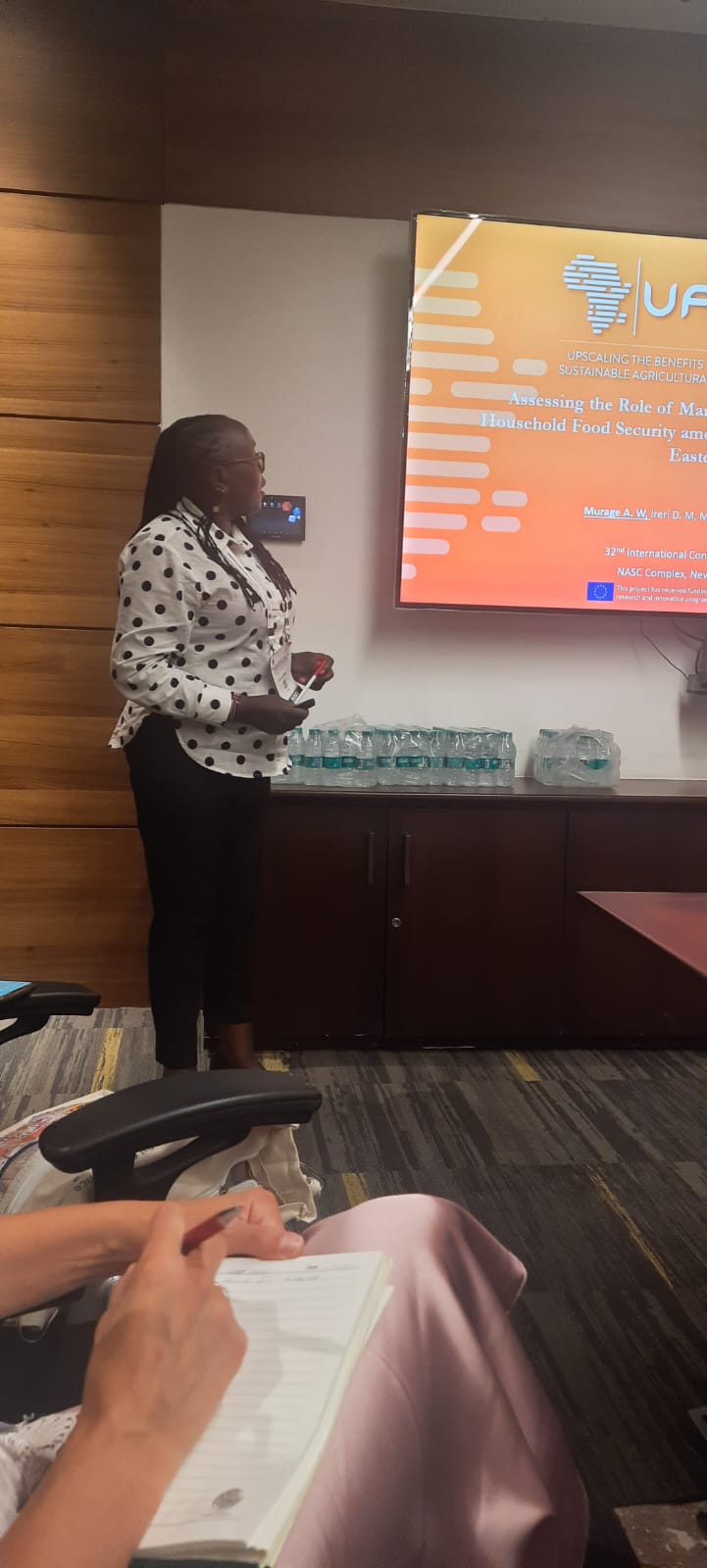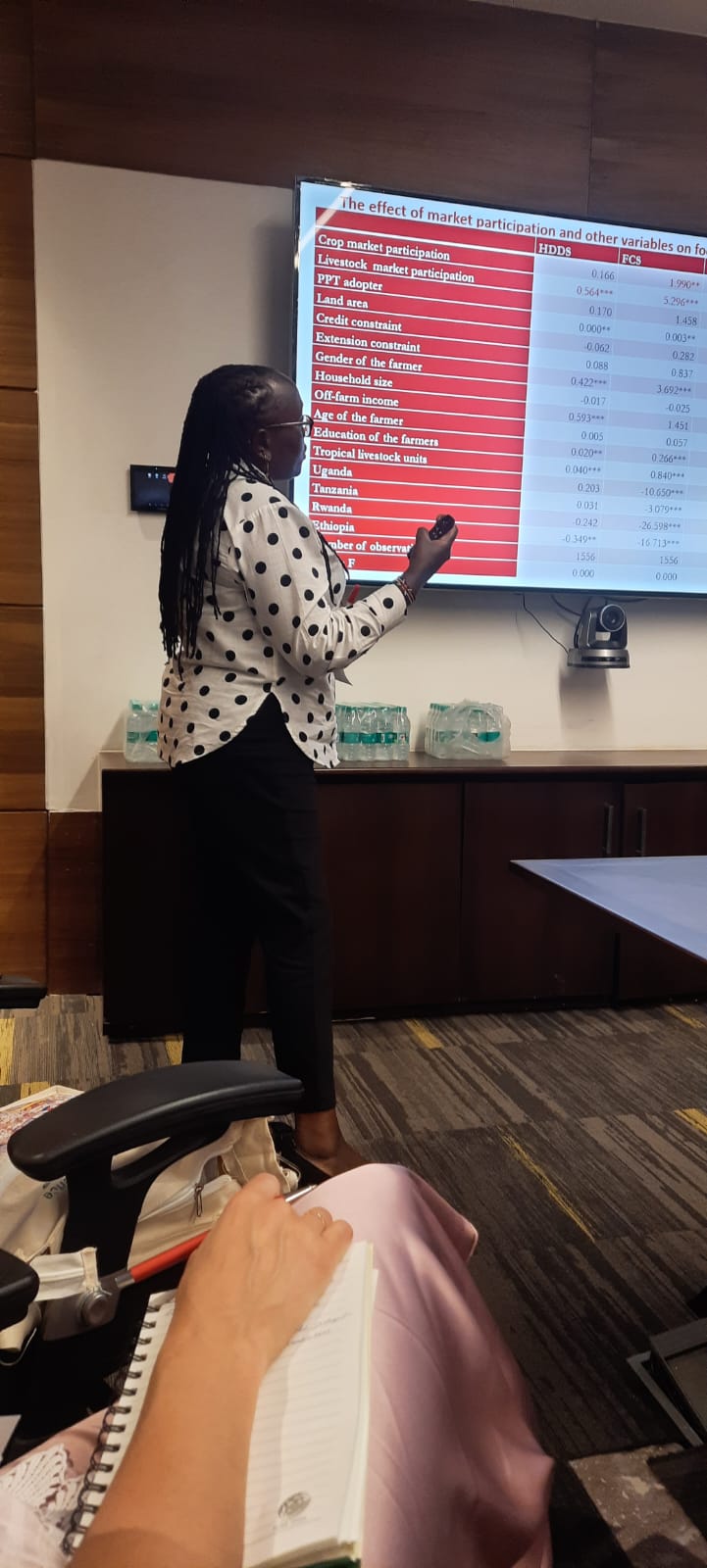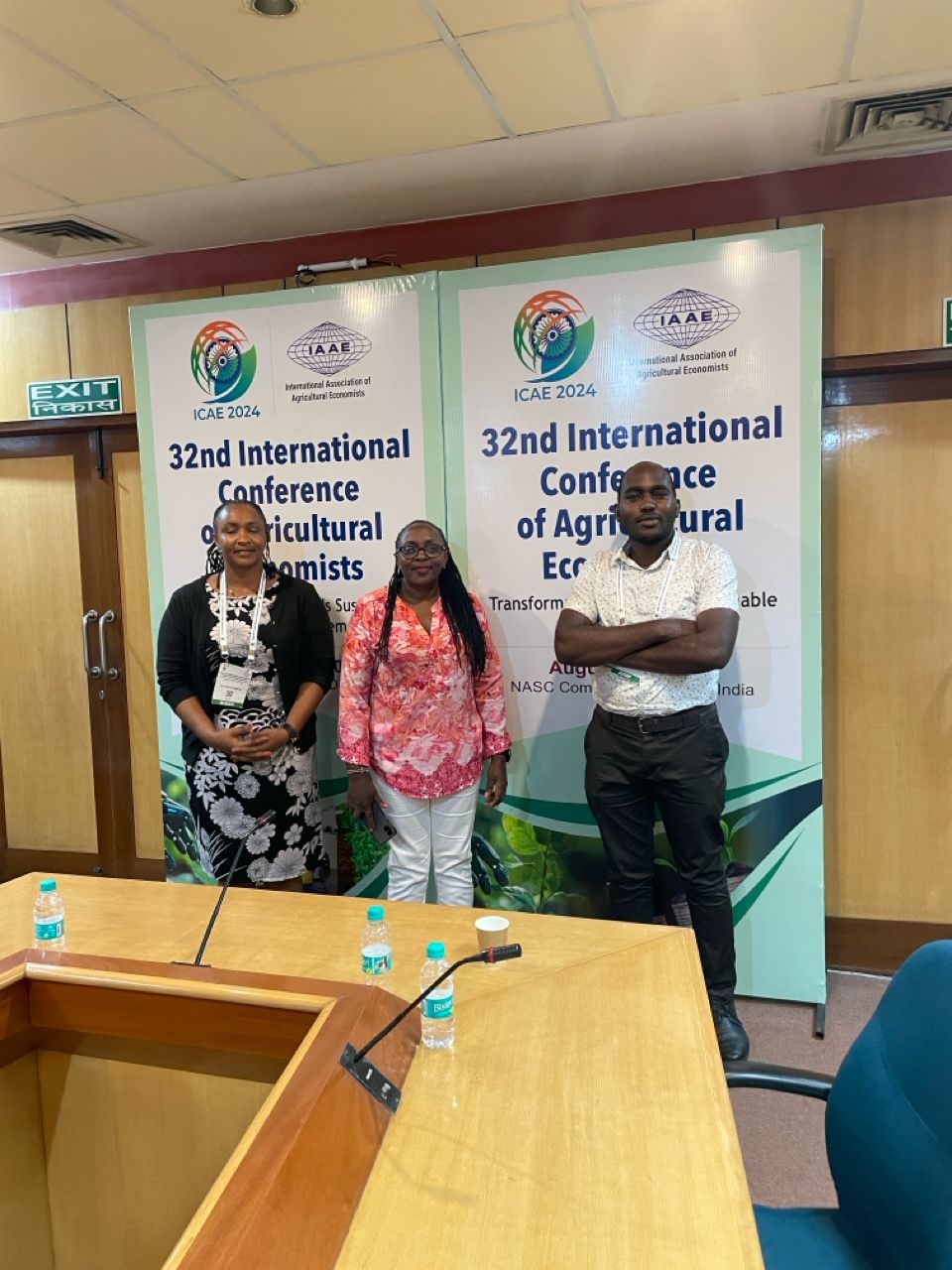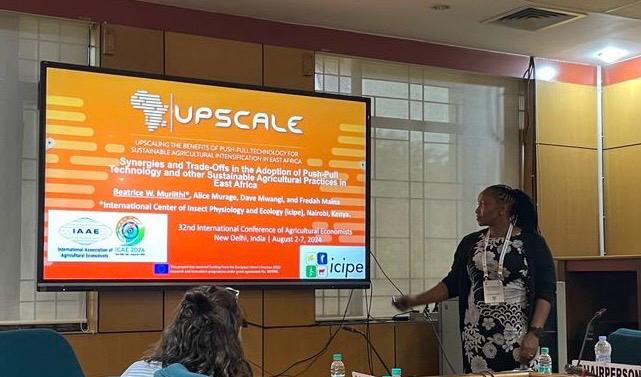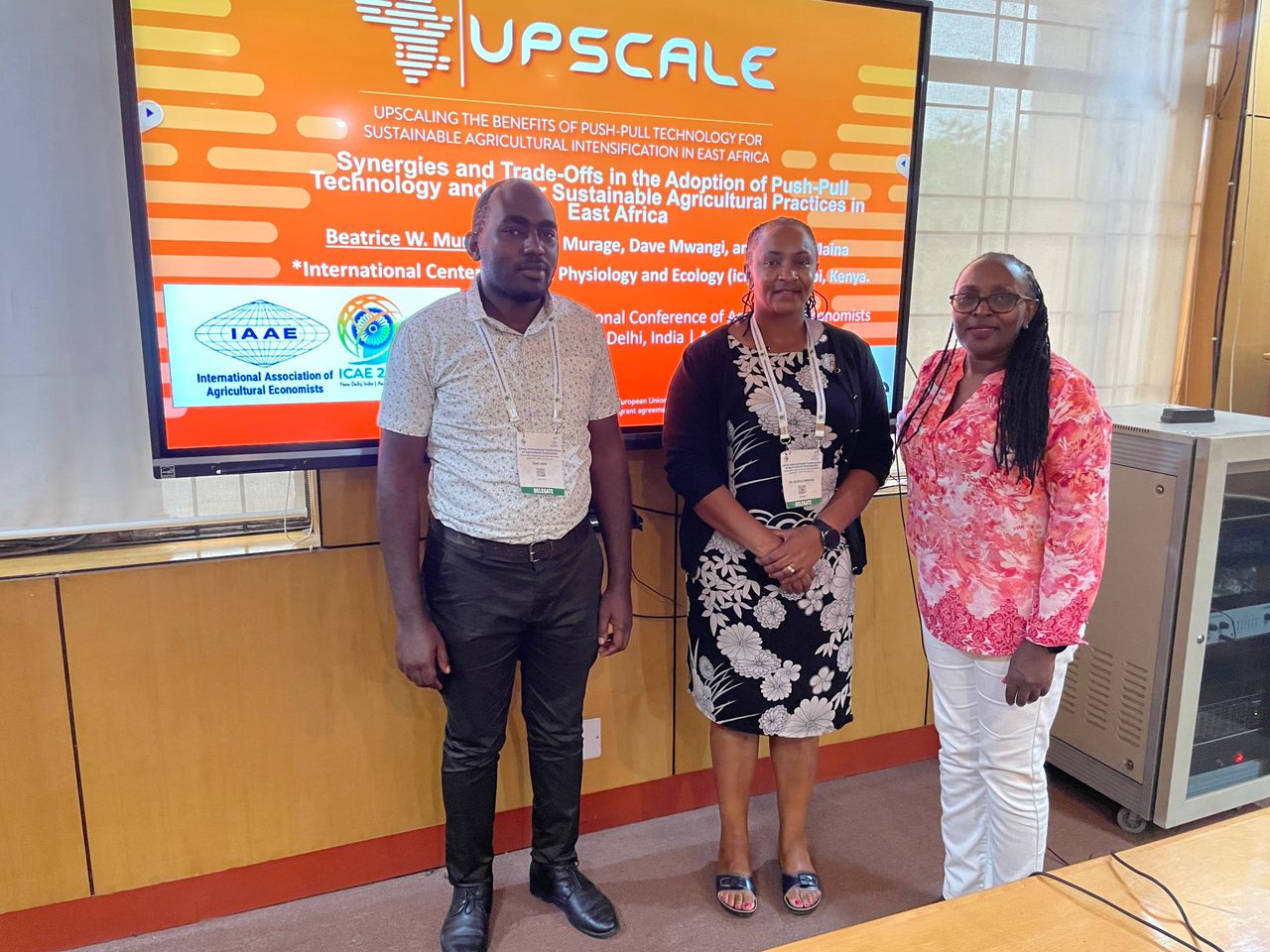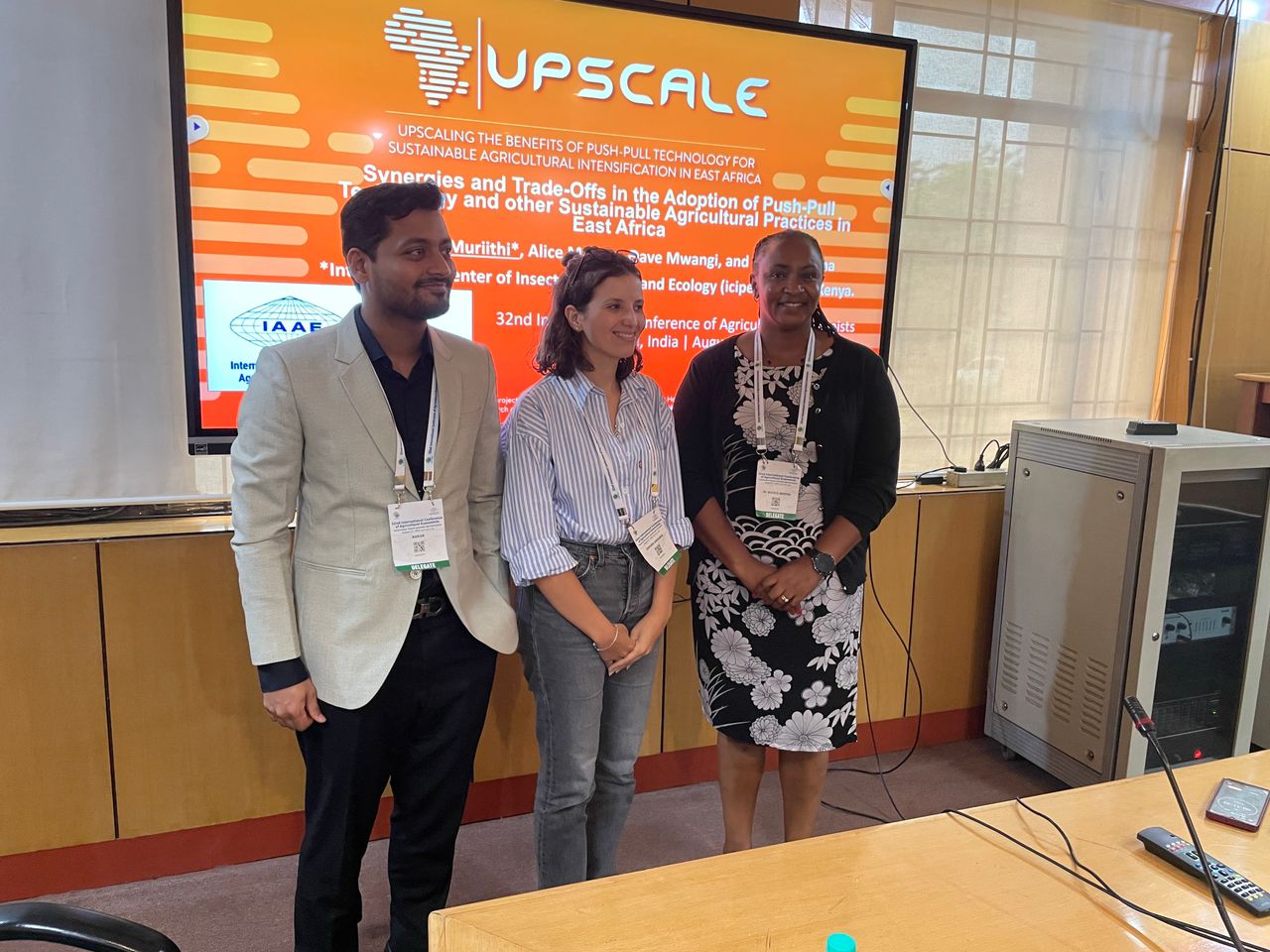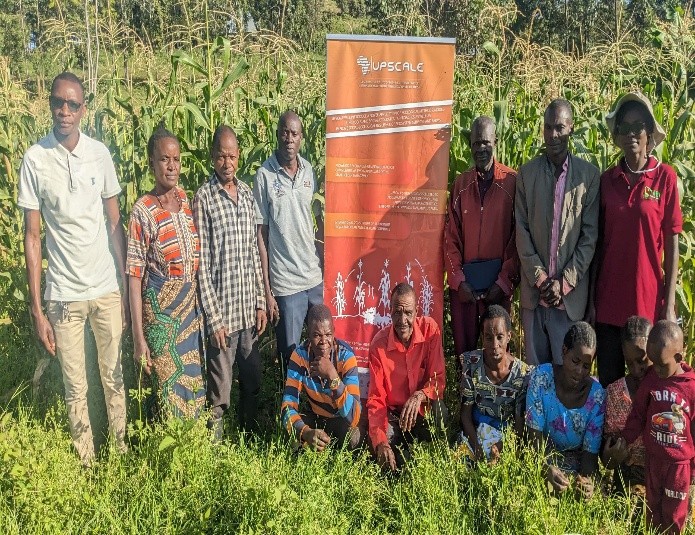Name of the event: The triennial International Conference of Agricultural Economists (ICAE-2024)
Date: The meeting took place from the 2nd to the 7th of August 2024
Organiser: The conference was organised by the International Association of Agricultural Economists, jointly organized with the ICAR-National Institute (formerly Centre) of Agricultural Economics and Policy Research (ICAR-NIAP), the Agricultural Economics Research Association (India), the International Food Policy Research Institute (IFPRI), Indira Gandhi Institute of Development Research (IGIDR) and the National Academy of Agricultural Sciences (NAAS).
Venue: New Delhi, India
Centred on the theme “Transformation Towards Sustainable Agri-Food Systems”, the conference offered a distinctive platform, providing a golden opportunity for agricultural academic institutions and researchers to convene in person, exchange knowledge, and actively contribute to the global agricultural research community. This International Association of Agricultural Economists (IAAE) flagship conference attracts about a thousand colleagues from around the world. The IAAE has a worldwide membership of agricultural economists and others concerned with agricultural economic problems, organized to foster the application of agricultural economics to improve rural economic and social conditions.
ICAE 2024 addressed urgent questions on how to make agri-food food systems more sustainable with a particular focus on the important role of agricultural economists in facing these interdisciplinary challenges. The conference featured invited and contributed papers and sessions on topics such as healthy and sustainable diets, technological and institutional innovations, agroecology, gender roles and social equity in agri-food systems, environmental and social externalities of value chains, the true cost of food, and bioeconomy, among others.
UPSCALE’s project partners Alice Murage, Beatrice Muriithi, Fredah Maina and Dave Ireri participated as speakers and panellists. Our partners held presentations introducing UPSCALE progress and results on sustainable intensification practices.
We are sharing the abstracts below and congratulate the whole team for this success!
Assessing the Role of Market Participation in Enhancing Household Food Security among Smallholder Cereal Growers in Eastern Africa
Abstract: Food and nutrition insecurity presents a formidable challenge in rural regions of developing nations, aligning with overarching global development objectives. This study investigates the interdependence between technology adoption, market participation and food and nutrition security in Eastern Africa, focusing on cereal farmers using push-pull technology (PPT). The study used data from five countries, and employed a longitudinal survey, while the statistical analysis was done using logit, and multiple regression models. The measures used were Household Dietary Diversity Score (HDDS), Food Consumption Score (FCS), Food Insecurity Coping Strategy Index (FCSI), and Food Insecurity Experience Scale (FIES). The findings underscore the importance of PPT adoption in market participation decisions. Furthermore, resource endowment like land size, off-farm income, Tropical Livestock Units (TLU) enhanced market participation. Moreover, market participation enhances dietary diversity and food security, aligning with existing literature. Notably, credit and extension constraints may impede market participation, thus jeopardizing food security, whereas group membership emerges as a positive influencer. The study concludes that interventions geared towards enhancing farmers’ capital base are pivotal for realizing food security objectives. Integration of technologies such as PPT, and advocating for collective action not only facilitates market participation but also augments overall food security for sustainable agri-food systems.
Keywords: Market participation, Food and Nutrition Security, Push-Pull Technology
Synergies and Trade-offs in the Adoption of Push-Pull Technology and Other Sustainable Agricultural Practices in East Africa
Abstract: The agri-food system currently faces multiple threats that continue to weaken its resilience. Climate change and the widespread environmental challenges of our time on food systems are evident, requiring the adoption of integrated strategies to reduce the associated adverse effects. This paper examines the complementarities and trade-offs of different sustainable agricultural practices and the determinants of their adoption among smallholder cereal growers in East Africa. We pay more attention to “push-pull technology (PPT)”, a conservational biological control strategy that addresses the triple burden of stemborer and fall armyworm, and Striga weed in cereal production in Sub-Saharan Africa (SSA). We find synergies between PPT and other sustainable agricultural practices. The adoption of SAPs is influenced by plot characteristics, social networks, credit access and quality of extension services, the incidence of drought, age, and education. The results provide policy insights needed to enhance the greater adoption of SAPs for sustainable and resilient agri-food systems in SSA.
Keywords: Trade-offs, Push-Pull Technology, Climate Change, Sustainable Agricultural Practices
Factors Influencing the Decision to Adopt and Extent of Push-Pull Technology Adoption in Eastern Africa
Abstract: Push-Pull Technology (PPT) combats stem borer, striga, and fall armyworm in cereals. This study examines factors influencing household decisions to adopt PPT and the extent of its adoption using data from 1556 households in Kenya, Uganda, Tanzania, Rwanda, and Ethiopia. The double hurdle model reveals that access to extension services, household size, age, and education level of the household head positively influence the adoption decision but not the extent. Women-headed households are more likely to adopt PPT, highlighting the need for their empowerment. Group membership positively affects both the decision and extent of adoption. Factors like distance to credit sources, pest experience, land size, and soil loss influence the extent but not the adoption decision.
Keywords: Push-pull, women, adoption, food security, Eastern Africa
Authors for all abstracts: Alice Murage, Beatrice Muriithi, Fredah Maina and Dave Ireri

